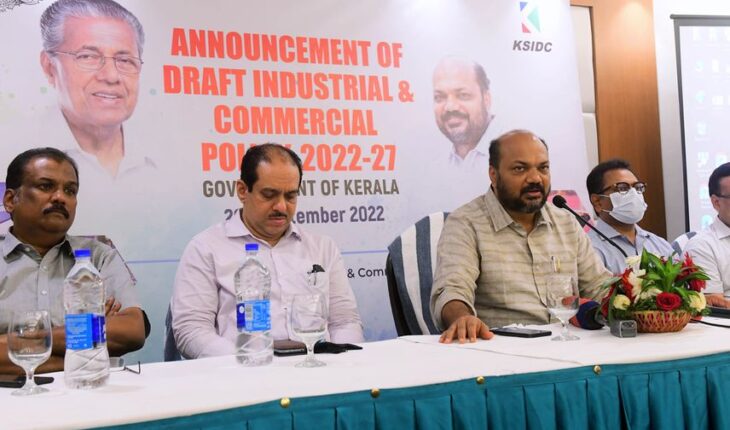Government of Kerala unveiled its new industrial policy. The policy has special focus on upgrading skills of youth for jobs of the future, industries and technologies of the fourth industrial revolution, and aligning the industrial sector with the State’s vision of responsible and sustainable investments.
Presenting the draft industrial policy here, Minister for Industries, Law and Coir P. Rajeeve said the new policy would aim to tap the strengths of the State and foster investments in sunrise sectors.
We will play to our strengths and see wherever we can utilise our production capabilities to manufacture in Kerala. We will focus on our core strengths and aim to promote employment generation, he told reporters
The existing industrial policy was formulated in 2018. The Minister said the draft industrial policy would be shared with stakeholders within 10 days, and inputs would be taken from industry bodies and others before finalising the policy.
The new industrial policy would be released in January 2023, and be effective from April 1, 2023, he said
The key pillars of the new policy include fostering entrepreneurship, enabling infrastructure, being ready for the Industrial Revolution 4.0 and upgrading skill sets of youth for futuristic jobs, an official statement said.
The draft policy envisages creating more employment, retaining the talent pool, ensuring balanced regional development and giving incentives for sustainable and responsible investments.
Some of the priority sectors identified in the draft industrial policy are artificial intelligence, space sector, ayurveda, biotechnology, designing, electronic system design & manufacturing, electric vehicles, engineering & research and development, food technology, and Graphene, it said.
Other areas identified for emphasis are hi-tech farming, high value-added rubber products, logistics, medical equipment, nano technology, renewable energy, retail, robotics, tourism & hospitality, 3D printing and marine cluster.
Several incentives have been included in the draft policy, including investment subsidy on fixed capital, SGST reimbursement and apprenticeship incentives for the manufacturing sector
Kerala Govt unveils new draft industrial policy




